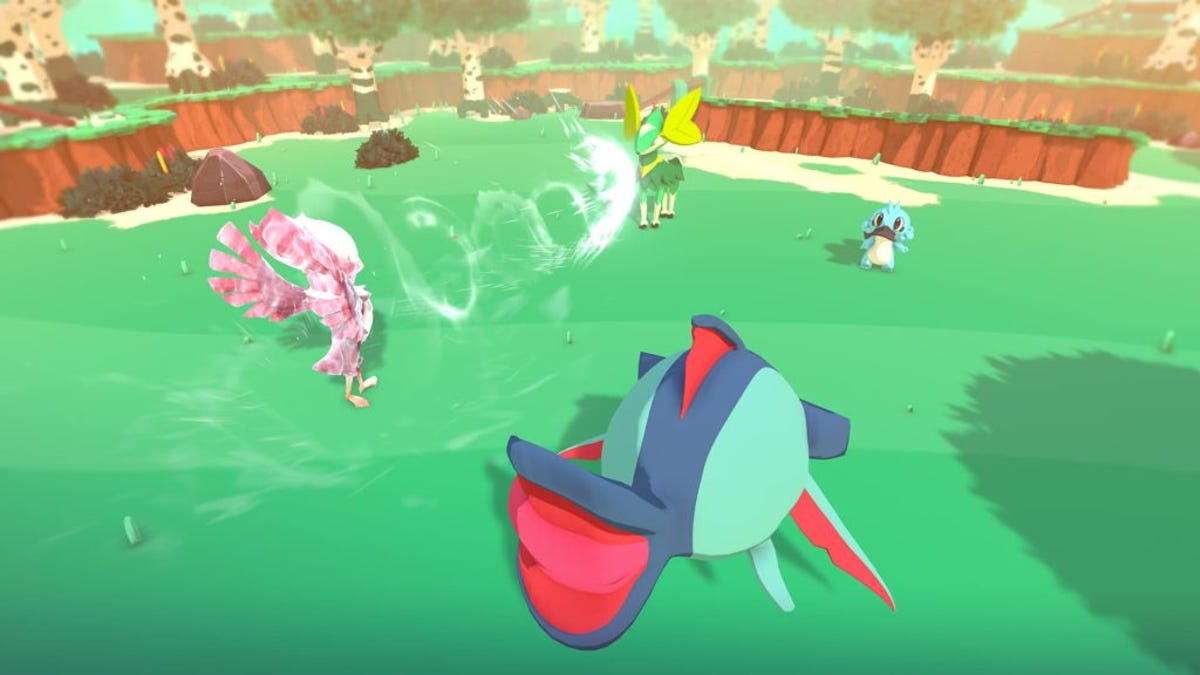
The Pokémon-like is a popular subgenre of game, spawning successes like Palworld and Temtem—games that have toyed with the legendary franchise’s monster-catching formula in multiplayer settings. However, though the former is fresher and seemingly built to be an ongoing service game, the latter is entering the end of its active development, according to an open letter from the developer, since it was never really built to go on forever.
Temtem, which released in early access back in 2020, will be receiving its last few content-filled patches in the next few months, before developer Crema winds down development and keeps the game on life support. Per the studio’s letter, Patch 1.7, which will be arriving in June, will contain the usual assortment of content, including a new season, season pass, and the last of its promised roadmap features, the Arcade Bar. Importantly though, it’ll also shift Temtem into the next phase of its life and rip out the microtransactions that were implemented over the course of its development.
Patch 1.8 will then complete the transition, allowing for players to cycle through previous season passes in order to reduce “FOMO,’’ and ushering in balance changes and reworks to metas and in-game economies to set the stage for Temtem’s soft retirement. Crema claims that this won’t be the last time they ever touch Temtem, as they’ll continue releasing patches and fixes for the issues that will naturally arise from the changes that the studio is deploying, but after 1.8, Temtem will effectively be complete and playable in perpetuity. The letter also assures that, thanks to Temtem’s relatively slim server costs, the game will remain up and running for a long time to come.
The open letter is more than just a notice about Temtem’s upcoming content and roadmap, though, also reading as an apology to the community for the game’s and the studio’s shortcomings. Anxieties around the future of Temtem seem to have risen among the community as the studio stood quiet on the status of upcoming content, and the announcement of another title in the series, Temtem: Swarm, seemed to be the tipping point.
A lot of the tension, as Crema puts it, seems like it can be traced back to the game’s beginnings and the language used around Temtem and what it promised to be. Though Crema notes it has always dubbed the game an “MMO-lite,” limited tagging abilities on storefronts have led to the widespread belief that it was as broad an MMO as, say, World of Warcraft. Crema seemingly regrets not more effectively clarifying that this was not the case, and those perceptions in turn backed the studio into a place where it felt it had to provide meaningful features to a crowd of players expecting a full-fledged MMO. Moving forward, Temtem’s store tags will paint a clearer picture of what the game is, but the troubles surrounding this issue have already done their damage.
Crema is not the size of your average MMO team, a fact which has crept up on the studio in more ways than one. Development of new areas and creatures has always been a steep investment for the relatively small crew, and time and money are not luxuries the studio has had an abundance of. While Temtem was built with a certain amount of content in mind, the fact that the team has exceeded this scope has created what Crema calls “technical debt,” which makes the addition of anything else atop the existing infrastructure a logistical nightmare that threatens to undo the game. The studio’s letter pays thanks to “the Crema of the past” for having the forethought to build a “finite, yet endlessly enjoyable online world,” even if this structure now holds the team back from fulfilling all of the playerbase’s desires for Temtem.
The technical debt, as well as Crema’s size, has stopped the studio from implementing a number of features that were promised, including a PvP Draft system and the release of a Temtem API. According to Crema, the former of these features didn’t quite reach the team’s standards and “the amount of bugs that it caused was a cautionary tale.” The scope of integrating the API, meanwhile, was deemed “way more complex than anticipated.”
As for the future of the Temtem series, Crema suggests it is not immediately working on a sequel, citing the team’s desire to “produce a product and flow of content that all of you could enjoy and love to the maximum,” and admitting that goal is still out of its reach. The studio is, however, developing another game in the universe (aside from Temtem: Swarm) called Project Downbelow in a new engine and with a new combat system. The hope seems to be to use it as a project to test ideas that would’ve gone into a direct sequel to Temtem, without marrying the studio to such a costly project.
Despite the setbacks faced throughout Temtem’s development, Crema seems relatively optimistic about the series continuing in other games and media, including the studio’s ongoing projects and a TV show that’s in the works. And who knows? Maybe someday down the line, we’ll actually get a proper sequel. In the meantime, kudos to the studio for being so open about the difficulties of developing such an ambitious title as such a small team.








